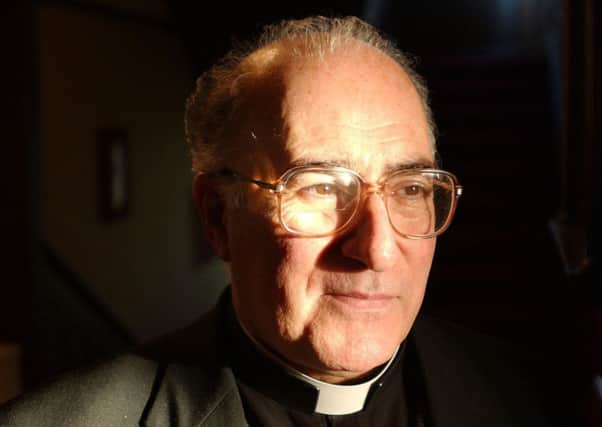Chris Marshall: Weight of child abuse evidence delays justice


Yesterday it was the turn of Archbishop Mario Conti, the former Roman Catholic bishop of Aberdeen, to give evidence.
The archbishop watched alongside survivors as a 1998 BBC documentary was shown about alleged abuse in children’s homes run by the Sisters of Nazareth.
Advertisement
Hide AdAdvertisement
Hide AdAppearing in the documentary, the then bishop questioned the motivations of those coming forward, saying at least some were being encouraged by lawyers “dangling a pot of gold”.
In the 20 years since the documentary was aired, the understanding of the scale of abuse that took place in Scotland’s institutions has only gradually become known.
Archbishop Conti said he was now embarrassed by the comments he made in the programme, expressing his “pain and sorrow” at what had happened in the past.
But there are many, many survivors for whom words are not enough – they want to see justice for what they were forced to endure.
Last week the Scottish Government confirmed it had accepted a request from judge Lady Smith to extend the abuse inquiry indefinitely to allow more survivors to come forward and give their testimony.
Lady Smith, who has led the inquiry since the resignation of its former chair in July 2016, wrote to Deputy First Minister John Swinney this month informing him there was “no prospect” of a final report being ready by the end of next year, as was previously planned.
It now means the inquiry, which has cost £13.9 million to date, will report “as soon as reasonably practicable”.
The request for an extension is entirely understandable given the amount of work the inquiry team still has to do and the amount of evidence still to be heard.
Advertisement
Hide AdAdvertisement
Hide AdMore than 70 institutions, including boarding schools and children’s homes run by religious organisations, are being investigated, with the incredibly broad time-frame of “within living memory” to the end of 2014 being used.
Indeed, evidence relating to just one institution – Smyllum Park in Lanark – took a number of weeks to be heard this year.
While it is vitally important that all those who wish to gave a statement to the inquiry are able to do so, its work cannot be allowed to drag on.
When restricting the remit of the inquiry to those who were abused in residential care rather than all abuse survivors, the Scottish Government argued that a wider remit would see the inquiry taking “many more years to conclude”, letting down those who have waited decades for justice.
That sentiment remains – the inquiry has to get it right, but with many of the survivors now in old age, it must finish its work without unnecessary delay.
Nor should the Scottish Government allow the extension of the inquiry to delay a decision on redress for victims.
The public hearings have already heard written testimonies read out from those who did not live long enough to see justice.
For those that remain, the Scottish Government must agree on a form of redress which will go some way to recognising the horrors of the past.
